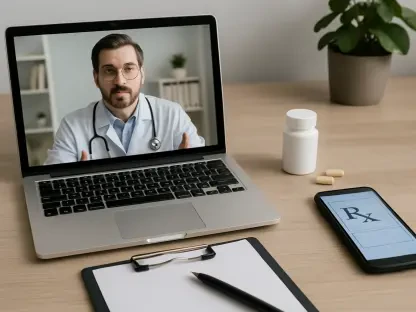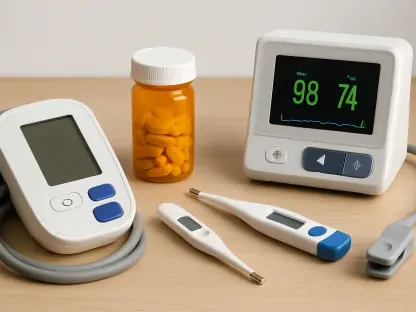The recent cyberattack on Genea, one of the most prominent IVF providers in Australia, has sent shockwaves through the healthcare sector, raising urgent questions about the readiness of such facilities to face growing cyber threats. The breach, which jeopardized sensitive patient data and disrupted the services of 21 clinics, including the widely-used MyGenea app, has left thousands of patients uncertain about their treatment schedules and futures. As healthcare providers become prime targets for cyberattacks, the need for robust cybersecurity measures has never been clearer.
The Scale of the Cyberattack
Impact on Genea Services
The cyberattack on Genea resulted in the immediate shutdown of several critical systems, causing significant disruptions to the services provided by its 21 clinics. The MyGenea app, an essential tool for patients tracking their fertility cycles and medication schedules, was rendered inoperative, leaving thousands of patients in the dark about their treatment plans. This abrupt cessation of service not only heightened anxiety among patients but also posed a substantial logistical challenge for healthcare providers struggling to maintain continuity of patient care.
Genea’s prompt response involved enlisting external cybersecurity experts to assess the extent of the breach and secure compromised systems. The organization also contacted the Australian Cyber Security Centre and the Office of the Australian Information Commissioner (OAIC), following legal requirements to report such incidents. Despite these swift actions, the potential compromise of personal data, including names, emails, phone numbers, medical histories, and test results, underscored the critical importance of maintaining robust cybersecurity defenses in safeguarding patient information.
Financial and Emotional Impact on Patients
IVF treatments are already a significant emotional and financial investment for many patients, with costs averaging over $12,000 per cycle. The disruption caused by the cyberattack exacerbated these stresses, with patients increasingly concerned about the impact on their treatment’s success. The uncertainty surrounding personal data breaches has also led to heightened anxiety and distrust among patients, who fear further disruptions to their plans and potential misuse of their sensitive information.
Advocacy groups have been vocal in demanding prioritized support and clear communication from Genea, emphasizing that the high stakes associated with fertility treatments justify urgent and enhanced patient assistance. In response, Genea has committed to providing regular updates and efforts to mitigate the fallout from the cyberattack. This incident serves as a stark reminder that the repercussions of such breaches extend far beyond the digital realm, deeply affecting the lives of individuals relying on these critical healthcare services.
The Need for Stronger Cybersecurity Measures
Increasing Vulnerability of Healthcare Providers
The cyberattack on Genea highlights the increasing vulnerability of healthcare providers to cyber threats. As the healthcare sector continues to digitize and integrate advanced technologies, the risks associated with cyberattacks grow correspondingly. Sensitive patient data is a lucrative target for cybercriminals, who may exploit this information for a wide range of malicious purposes, including identity theft, financial fraud, and blackmail. The unprecedented volume of personal data contained within healthcare systems makes them appealing targets, posing significant risks to patient privacy and trust.
Healthcare providers must adopt comprehensive cybersecurity practices, such as zero-trust architectures, to fortify their defenses against potential intrusions. These robust measures can help mitigate the threat of malware, ransomware, and phishing attacks by ensuring that every access request is thoroughly vetted and authenticated. Given the increasing sophistication of cybercriminals, healthcare organizations must remain vigilant and continually update their security protocols to stay ahead of emerging threats.
A Call for Improved Cybersecurity Defenses
The Genea breach underscores the urgent need for improved cybersecurity defenses within the healthcare sector. Providers must invest in cutting-edge technologies and practices to safeguard patient data, such as encryption, multi-factor authentication, and continuous monitoring of systems for unusual activity. These measures, combined with regular staff training on cybersecurity best practices, can significantly reduce the risk of breaches and ensure the protection of sensitive patient information.
Furthermore, fostering a culture of cybersecurity awareness throughout the organization is crucial. Employees at all levels must understand the importance of adhering to security protocols and recognize the potential consequences of lax cybersecurity practices. By emphasizing the critical role each staff member plays in maintaining robust defenses, healthcare providers can create a more resilient infrastructure capable of withstanding cyber threats.
Moving Forward and Mitigating Risks
An Industry-Wide Challenge
The Genea cyberattack is not an isolated incident but rather an indication of a broader trend affecting the healthcare sector globally. As more healthcare providers experience similar breaches, the industry must collectively acknowledge and tackle the mounting cybersecurity challenges. By sharing knowledge, strategies, and experiences, healthcare organizations can better understand the evolving threat landscape and develop coordinated efforts to strengthen their defenses.
Collaboration between healthcare providers, cybersecurity experts, and regulatory bodies is essential in creating a comprehensive and unified approach to combating cyber threats. This collective effort can drive the development of industry-wide standards and best practices, ultimately enhancing the security posture of healthcare organizations and safeguarding patient trust.
Future Considerations
The recent cyberattack on Genea, a leading IVF provider in Australia, has sent shockwaves through the healthcare industry, raising pressing concerns about the preparedness of medical facilities to handle increasing cyber threats. The security breach compromised sensitive patient information and disrupted the operations of 21 clinics, including the heavily relied-upon MyGenea app. This incident has left thousands of patients in limbo regarding their treatment schedules and overall future care.
As healthcare institutions become prime targets for malicious cyber activities, the necessity for implementing stringent cybersecurity measures has never been more evident. The incident underscores an urgent need for the healthcare sector to fortify its defenses against cyber threats to protect patient data and ensure uninterrupted medical services. It serves as a wake-up call for all healthcare providers to review and strengthen their cybersecurity protocols to prevent similar breaches, as the implications of such attacks can be far-reaching and severe for both patients and providers.









